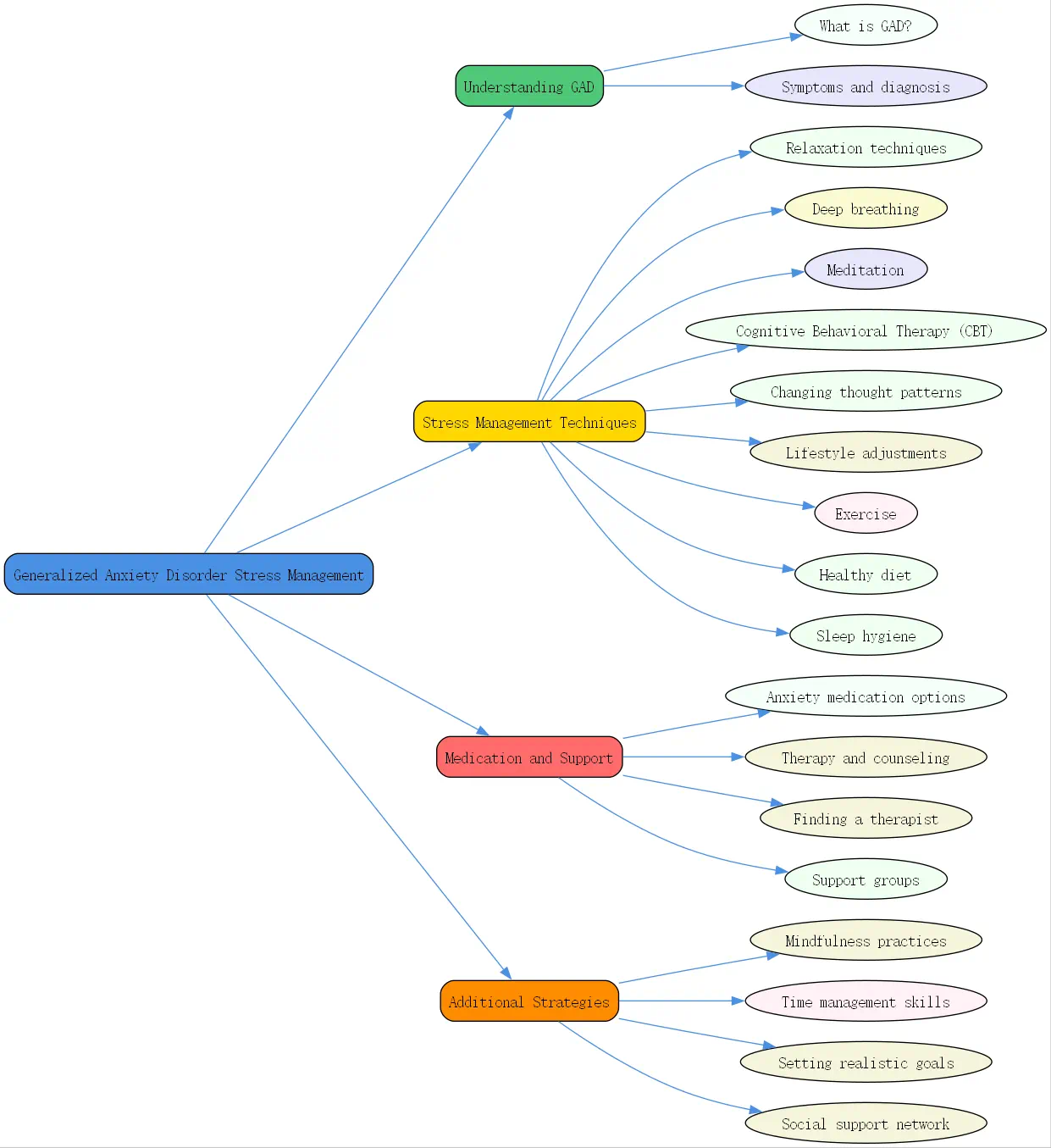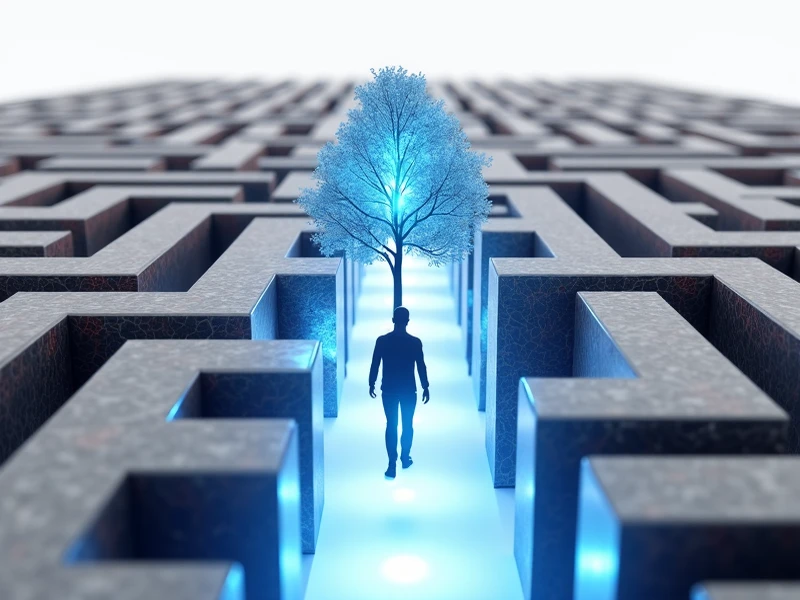Discover comprehensive techniques to manage generalized anxiety disorder stress, from relaxation methods to professional support. Learn to live a calmer life today!
Generalized Anxiety Disorder Stress Management: A Comprehensive Guide

Understanding Generalized Anxiety Disorder (GAD)
Generalized Anxiety Disorder (GAD) is a prevalent mental health condition marked by excessive, persistent worry that disrupts daily functioning. Unlike specific phobias, GAD does not hinge on particular triggers, making it a diffuse and constant concern over various life aspects.
What is Generalized Anxiety Disorder? Defining GAD and its Characteristics
GAD is characterized by ongoing tension, nervousness, and worry. These feelings often exceed the typical anxiety levels that might be expected from day-to-day stressors. For individuals experiencing GAD, the world feels like an endless pattern of what-ifs.
Symptoms of GAD: Recognizing the Signs
Common symptoms include restlessness, irritability, muscle tension, difficulty concentrating, fatigue, and sleep disturbances. Recognizing these signs is the first step toward managing them effectively.
Impact of GAD on Daily Life: Social, Occupational, and Academic Areas
This disorder can result in significant impairment in personal and professional realms. Social withdrawals, decreased work productivity, and academic challenges are common, subsequently increasing life’s overall stressors.
Effective Anxiety Stress Management Techniques
Lifestyle Changes for Anxiety Management
Integrating simple lifestyle changes can significantly affect anxiety management. These amendments pave the way for more significant, more permanent relief.

Regular Exercise and its Benefits
Physical activity like walking, jogging, swimming, and yoga for at least 30 minutes most days can significantly ameliorate mood and decrease anxiety symptoms.
Healthy Diet and Nutrition
Eating balanced meals, reducing sugar intake, and increasing vegetables and fruits can stabilize blood sugar levels, reducing mood swings and anxiety.
Prioritizing Sleep Hygiene
Quality sleep is crucial. Establishing a regular sleep schedule and creating a restful environment free from distractions like electronics can boost overall mental health.
Limiting Caffeine and Alcohol
Both substances can provoke anxiety and disrupt sleep. Moderate consumption or avoidance might be necessary to manage anxiety more effectively.
Relaxation Techniques for Anxiety Relief
Techniques such as deep breathing, progressive muscle relaxation, and mindfulness meditation can be powerful tools for calming the mind and alleviating bodily tension.
Cognitive Behavioral Therapy (CBT) Techniques
Challenging Negative Thoughts
By identifying irrational beliefs, one can start to replace them with more positive and realistic perspectives??a core method in CBT.
Reframing Irrational Beliefs
Understanding and restructuring distorted thoughts can significantly alter one’s anxiety levels and overall outlook on life.
Establishing a Daily Routine
Routine brings stability, significantly vital for someone dealing with GAD鈥攊t provides a sense of control and predictability.
Setting Realistic Goals
Breaking tasks into smaller, more manageable steps can prevent overwhelming feelings and foster a sense of accomplishment.

The importance of social connection
Maintaining robust social connections and support systems can provide emotional comfort and a platform for sharing experiences, which is fundamental in overcoming feelings of isolation associated with anxiety.
Anxiety Medication Management and Professional Support
When to Consider Medication for GAD
Medication might be appropriate when therapy and lifestyle adjustments are insufficient alone. Consulting with a healthcare provider is crucial to understand the benefits and potential side effects.
Types of Medications Used to Treat Anxiety
Common options include SSRIs, SNRIs, and benzodiazepines, each working differently to alleviate symptoms of anxiety.
Consulting a Mental Health Professional
Professionals like psychiatrists or therapists can offer a diagnosis and tailored treatment plans. Ongoing support through therapy can be integral in overcoming GAD.
The Role of Therapy in Managing GAD
Therapies such as CBT are highly effective in teaching valuable skills for anxiety management, focusing on altering thought patterns and behaviors contributing to anxiety.

Additional Strategies for GAD Stress Management
Practice self-compassion
Recognizing the journey, being kind to oneself, and understanding that setbacks are part of the process can significantly aid in managing GAD more compassionately and effectively.




